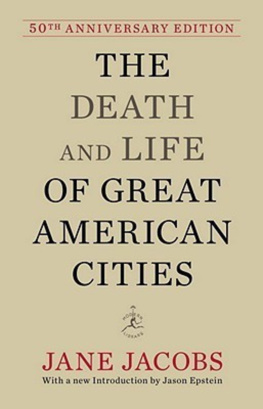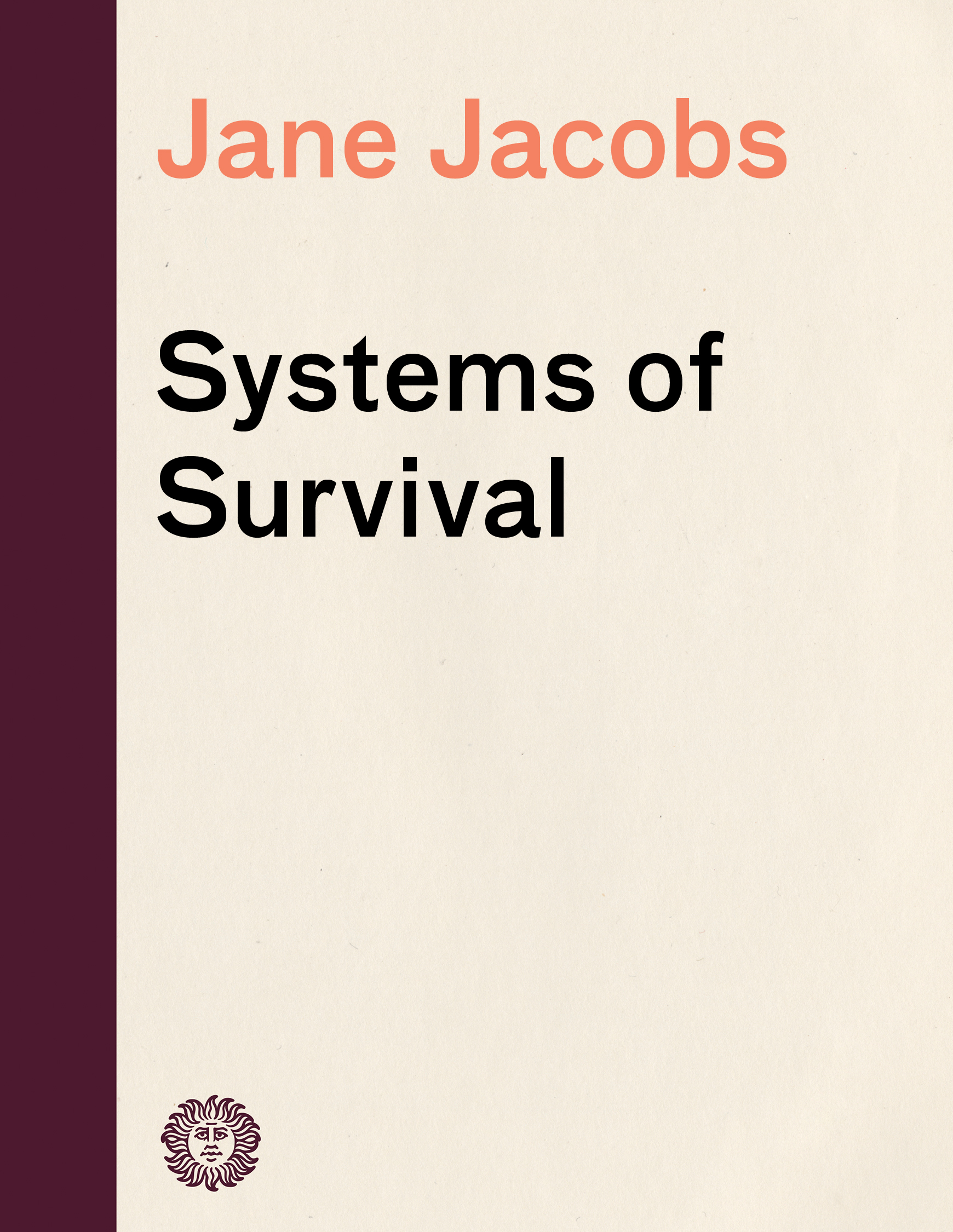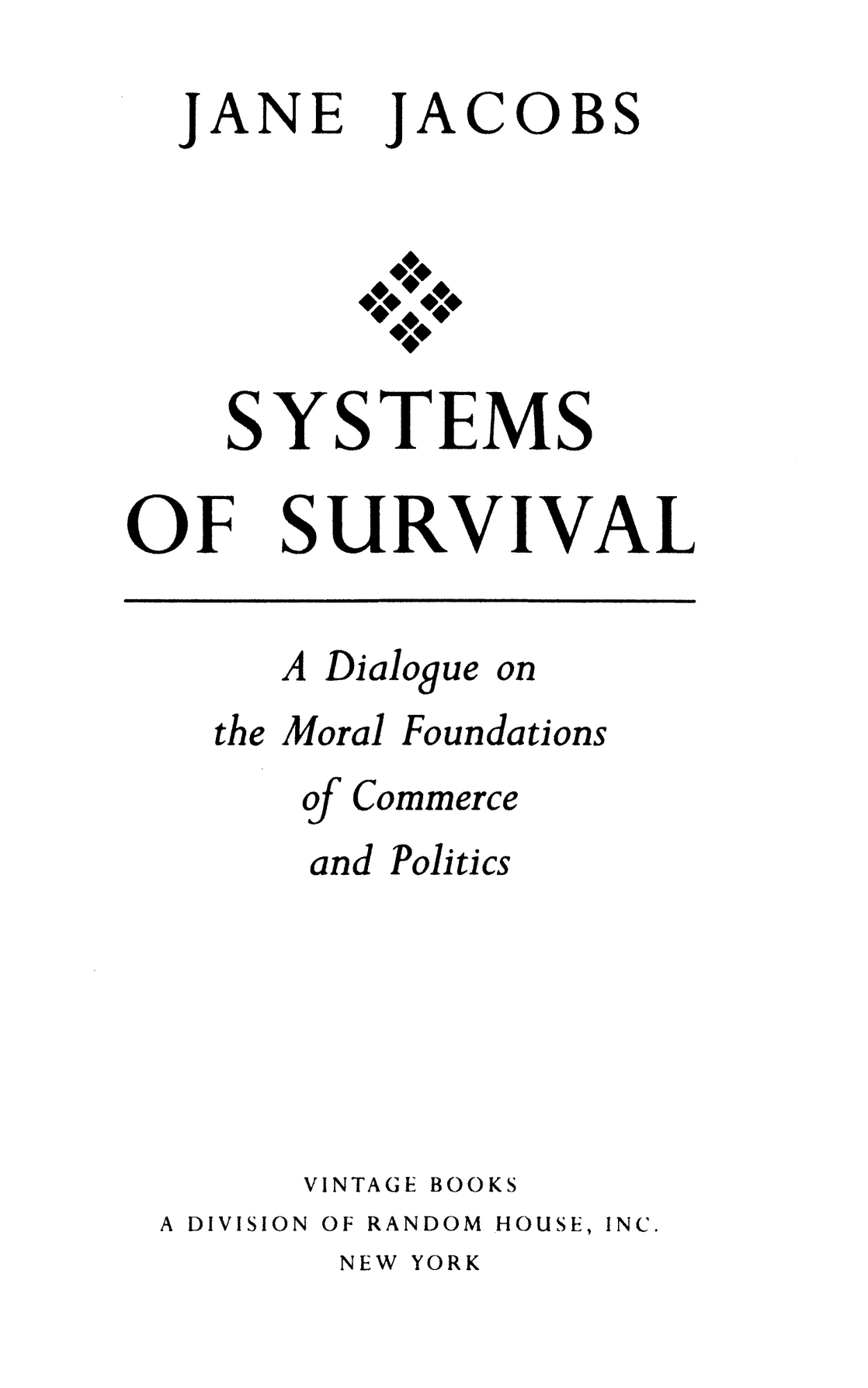beware of the wrong one.
PREFACE
This book explores the morals and values that underpin viable working life. Like the other animals, we find and pick up what we can use, and appropriate territories. But unlike the other animals, we also trade and produce for trade. Because we possess these two radically different ways of dealing with our needs, we also have two radically different systems of morals and valuesboth systems valid and necessary.
This is an unconventional approach to moral understanding. Philosophers and religious teachers have traditionally analyzed and emphasized the virtuous life for individuals and precepts for virtuous ruling, frequently both combined. People concerned nowadays with the ethics of working lifeas in law, business, science, legislative bodiestend to deal with happenstance ethical particulars, randomly mingling personal and private virtues into the mix. Neither approach coherently sorts out the startling moral contradictions in working life and the reasons for them.
As individuals trying to be good, we aim at being both loyal and honest, for example. But in working life, these two virtues are often in conflict; that is, we must be loyal at the expense of honesty or, conversely, honest at the expense of loyalty to our organization or fellow workers. Does this mean, as is so often concluded, that we can be good only in our private lives and that moral behavior must bend or break when we participate in the worlds work?
No, that demoralizing notion is nonsense. Clear rulesif we heed themtell us when honesty takes precedence and when loyalty does if the two conflict. Understanding the reasons for contradictions in the two systems of morals and values throws light on many conundrums: for example, why government-run businesses bog down in waste, inefficiency, and disappointed hopes, no matter what the system of government; when it is ethical to lie and deceive; when industriousness becomes a monstrous vice; what snobbery tells us; why there are no just resolutions for some types of debt defaults; why the practice of law embodies peculiar ethical problems; whether it is true or false that the mystiques of male bonding and loyalty come down to us from prehistoric hunting life; why governments cannot resist meddling in agriculture; why science flourishes only in societies that have achieved commercial vitality, but art can flourish magnificently in societies that lack commerce as well as in those that pursue it; what are the roots of class distinctions; whether organized crime models itself on government or business; and many other puzzles.
I have not invented the two moral and value systems I shall expound. The human race has accomplished that feat during millennia of experience with trading and producing, on the one hand, and with organizing and managing territories, on the other hand. I have merely sorted out this material, analyzed the probable origins and continuing functional reasons for it, and identified types of functional and moral quagmires into which organizations and institutions sink when they confuse their own appropriate moral system with the other.
Intuitively, many of us already understand much of the material with which I shall deal, but often not with sufficient clarity. For one thing, many of us have taken on casts of mind so skewed toward one set of morals and values that we have little understanding of the other, and little if any appreciation of its integrity too. If you do not already recognize a bias you may have absorbed from education, experience, interests, or ambitions, perhaps you will discover it here. The precept Know thyself includes knowing the scales with which one weighs actions and attitudes in the great world of work outside oneself.
The form I have chosen for my exposition is dialogue, primarily because this device suits the subject matter, as one of my characters says. So within the limits of my skill, this is the last you will hear of an authors voice. But expository dialogue usually employs a know-it-all who instructs fledglings, disciples, or stooges. My characters, instead, are equals, struggling together to make moral sense of working life.
This choice is not a whimsy. I am convinced we need continual but informal democratic explorations on the part of people who must thread their ways through governmental, business, or volunteer and grass-roots policies, or must wrestle with the moral conflicts and ethical puzzles that sprout up unbidden in all manner of occupations. Former Marxist societies, as they seek to reconstitute themselves, desperately need to clarify right and wrong in business and politics. But so do we. I hope that what my characters work out will help provide useful and suggestive guidelines.
CONTENTS






